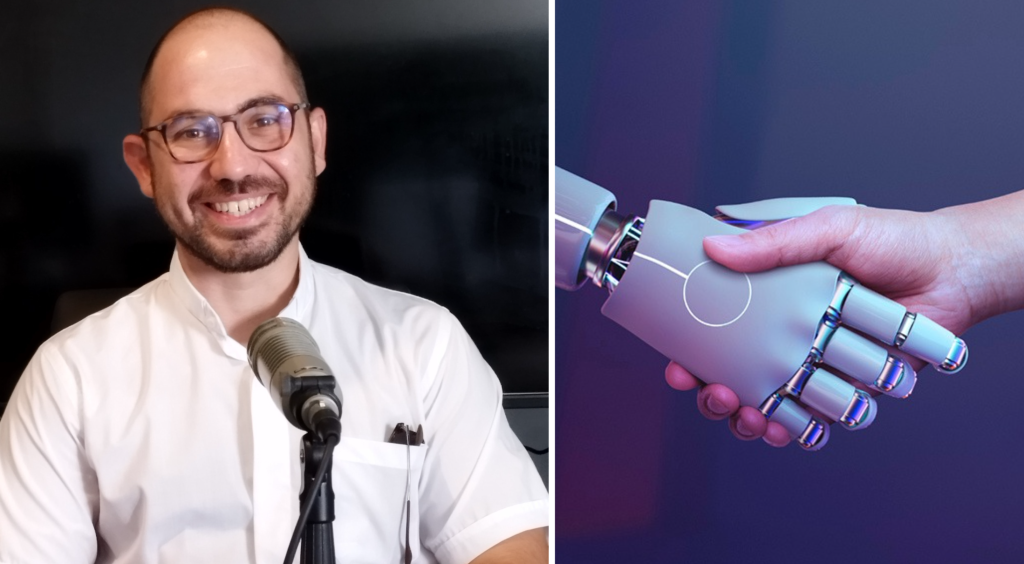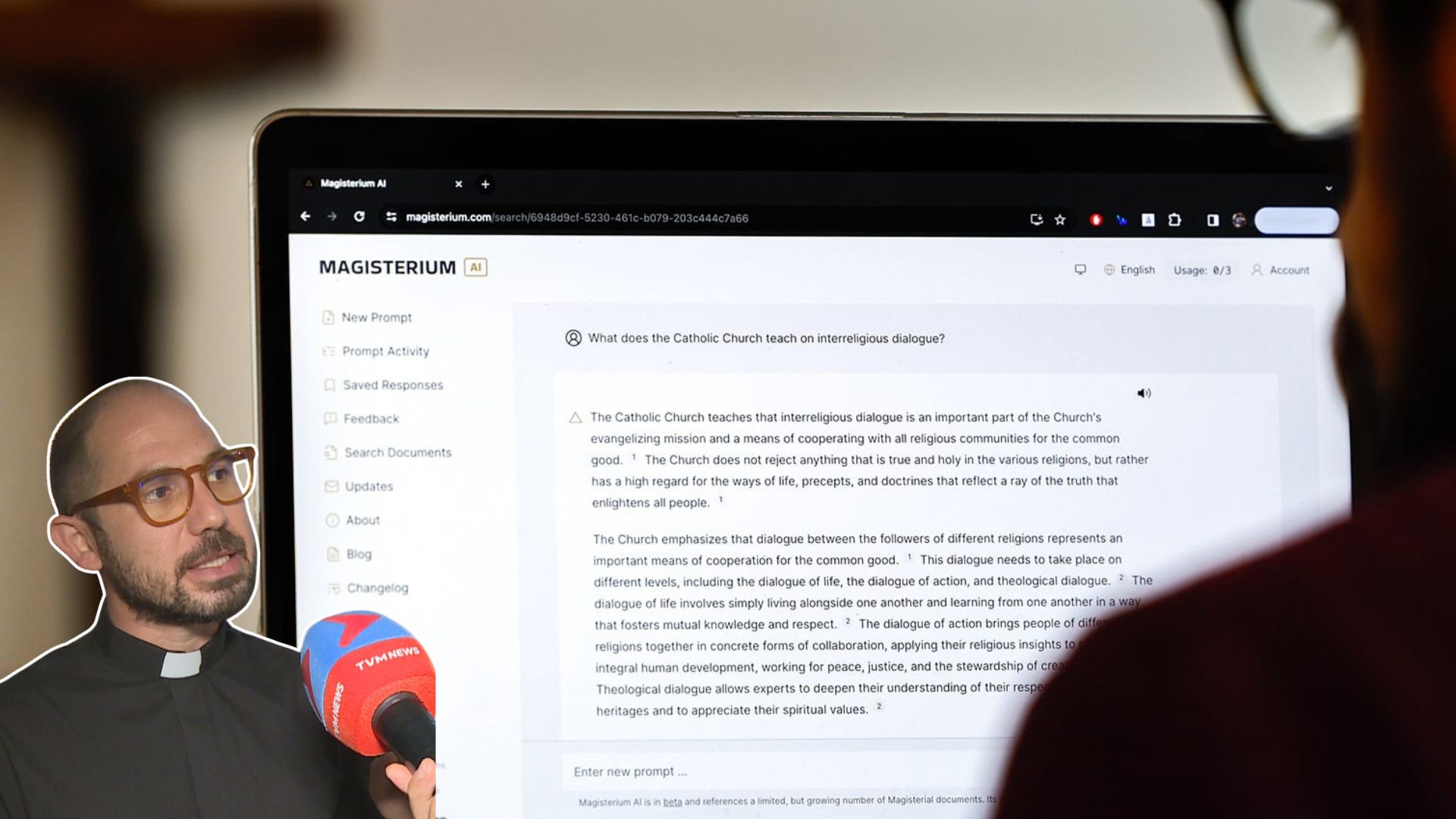Taking a transdisciplinary approach, this chapter offers a critical reflection on the opportunities posed by artificial intelligence (AI), specifically generative AI, as a catalyst for transformation in the field of educational leadership. Furthermore, the way in which educational leaders in Malta’s Church Schools are rising up to face the novel challenges posed by AI is explored. The chapter explores the overarching theme of how AI is transforming educational leadership. It also examines how AI literacy is gradually becoming a key leadership competency while addressing the ethical challenges that AI introduces into the field. It delves into the current practices which church school’s educational leaders in Malta and Gozo are implementing and the shift that they are going through, hand in hand with their educators in schools. The chapter also highlights the challenges which both the Secretariat for Catholic Education (SfCE), as an institution supporting over 50 church schools in Malta and Gozo, and the schools’ Senior Leadership Teams (SLTs) are facing, together with the opportunities AI is creating in optimising leadership decisions. Lastly, it provides forward-looking insights into how educational leaders in Malta’s Catholic Church School Sector will make headway as the capabilities and pervasiveness of AI technologies progresses.
Publications
Navigating AI in Catholic Church Schools: Leadership Transformation and Ethical Considerations (2024)
Natalie Lombardi Calleja, Roberta Trapani Maggi, & Jean Gové
published in "Educational Leadership in Transition: Innovative Perspectives and Practices for the 21st Century, in Malta and Beyond”, Charmaine Bonello and Mario Cutajar (eds.), (Malta University Distributors).
Skill-based acquaintance : a non-causal account of reference (2024)
This thesis provides an account of acquaintance with abstract objects. The notion of acquaintance is integral to theorising on reference and singular thought, since it is generally taken to be the relation that must exist between a subject and an object, in order for the subject to refer to, and entertain singular thoughts about the object. The most common way of understanding acquaintance is as a form of causal connection. However, this implies a problem. We seem to be able to refer and have singular thoughts about abstract objects. But given that abstract objects are causally inert, this would mean that we are unable to become acquainted with them. This problem shall be the focus of this thesis. I first argue that these traditional causal interpretations of acquaintance are lacking. Instead, I show that acquaintance is dependent to some degree on factors internal to the subject, namely the skills that they possess. From doctors to sommeliers to mathematicians (and possibly even philosophers!) – these subjects seem to succeed in becoming acquainted with certain objects precisely in virtue of their respective skills. Thus, building off from Evans’ The Varieties of Reference, I present a novel account of acquaintance, which I term as Skill-based Acquaintance (SBA). On SBA, a subject is said to be acquainted with an object when they possess discriminating knowledge of that object, gained through the use of their capacities and skills. Overall, then, SBA is shown to have greater explanatory power than competing accounts and should thus be preferred.
Conceptual engineering for analytic theology (2023)
Patrick Greenough, Jean Gové, & Ian Church
Conceptual engineering is the method (or methods) via which we can assess and improve our concepts. Can conceptual engineering be usefully employed within analytic theology? Given that analytic theology and analytic philosophy effectively share the same philosophical toolkit then if conceptual engineering works well in philosophy then it ought to work well in analytic theology too. This will be our working hypothesis. To make good on this hypothesis, we first address two challenges. The first challenge makes conceptual engineering look to be too inclusive; the second challenge makes it look to be too revolutionary (for analytic theology). To address these challenges, we propose a refined characterisation of conceptual engineering. We then turn to consider a number of case studies where analytic theology and conceptual engineering may fruitfully cooperate. These are: theological disagreements, inter-faith dialogue, meaning change, celibacy, AI, the name of God, and conceptual genealogy.
Distributed Cognition, Neuroprostheses and their Implications to Non-Physicalist Theories of Mind (2021)
This paper investigates the notion of ‘distributed cognition’—the idea that entities external to one’s organic brain participate in one’s overall cognitive functioning—and the challenges it poses to the notion of personhood. Related to this is also a consideration of the ever-increasing ways in which neuroprostheses replace and functionally replicate organic parts of the brain. However, the literature surrounding such issues has tended to take an almost exclusively physicalist approach. The common assumption is that, given that non-physicalist theories (chiefly, dualism, and hylomorphism) postulate some form of immaterial ‘soul’, then they are immune from the challenges that these advances in cognitive science pose. The first aim of this paper, therefore, is to argue that this is not the case. The second aim of this paper is to attempt to elucidate a route available for the non-physicalists that will allow them to accept the notion of distributed cognition. By appealing to an Aristotelian framework, I propose that the non-physicalist can accept the notion of distributed cognition by appealing to the notion of ‘unitary life’ which I introduce, as well as to Aristotle’s dichotomy between active and passive mind.
Public Engagement





